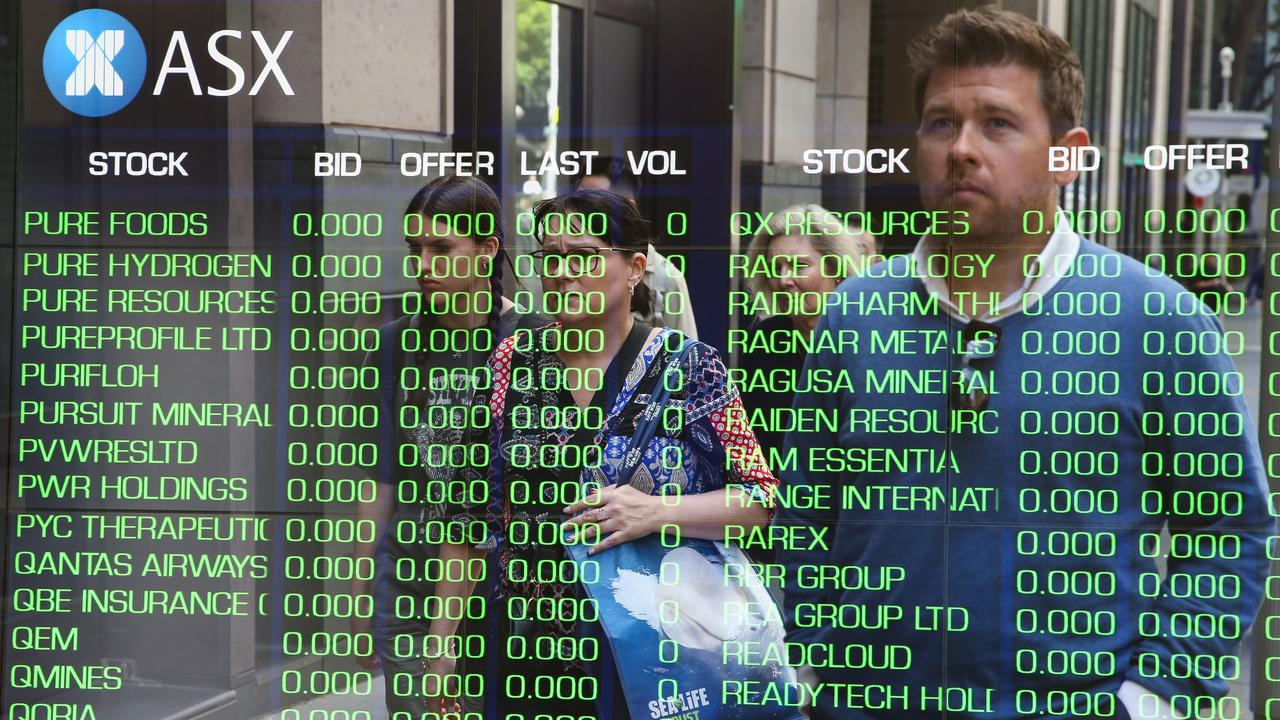eToro data shows gen Z Aussies piling into stocks
Gen Z is sometimes written off as a “live-for-the-day” generation, but a surprising new trend shows they’re a lot more savvy.

Gen Z Aussies are sometimes pilloried as a “live-for-the-moment” generation, but a surprise new investment trend could soon dispel that view.
Fresh data from investment platform eToro shows gen Z retail investors are piling into stocks, outstripping millennials and boomers.
Some 46 per cent of gen Z investors have increased their portfolio contributions in the past three months, eToro says, compared with some 33 per cent of millennials, 21 per cent of gen Xers, 13 per cent of baby boomers and just 3 per cent of the silent generation.
The proportion of gen Z investors aged 18 to 27 years who hold Australian equities now sits at 39 per cent, a 15 per cent quarter-on-quarter increase.
eToro market analyst Josh Gilbert said the longer “time horizon” available to younger Aussies could be a key factor propelling their growing faith in the stockmarket.
“Looking how far these guys have to invest, they have a lot more time on their side to be able to move into equities,” he said.

“If equities maybe take a bit of a hit, gen Z have the time to stay in the market and wait for those equities to come back and move forward.”
Buying equities, or stock, means purchasing a piece, or a share, of a publicly listed company through a brokerage platform.
Over time, the value of shares in a company will generally rise or fall depending on the company’s performance.
Shares in banking behemoth Commonwealth Bank have lifted 73 per cent in the past five years, meaning a $10,000 investment in October 2019 would be worth about $17,300 today.
Digital real estate giant REA Group has jumped 98 per cent, meaning a $10,000 investment in October 2019 would be worth $19,800 today.
Some companies also pay out regular dividends, or a portion of their profits, to their investors on an annual or semi-annual basis.
The benchmark ASX 200, which encompasses the 200 largest companies on the Australian Securities Exchange, has risen 24 per cent in the past five years.
But while gen Z are upping their bets on stocks, they are also increasing their cash holdings, eToro’s data shows, with the proportion of young investors holding cash jumping 14 per cent quarter-on-quarter to 72 per cent.
“I think we’ve got two sides of gen Zs,” Mr Gilbert said.
“We’ve either got them staying in cash because you have got a very difficult period at the moment for young people in Australia. High rental prices, high inflation, cost-of-living crisis. It’s not an easy time to be a gen Z.
“But on the flip side, if they have got cash to be able to invest, then they have got that risk profile that points more towards investing in equities rather than in lower risk assets like bonds.”

eToro’s data is based on a survey of 10,000 retail investors across 12 countries, including 1000 respondents in Australia.
The survey also shows gen Z Aussies are rotating out of the high-performing US market and back into local shares, which Mr Gilbert credits to a hunt for “value”.
“I think there is a little bit more value at home than there is overseas,” he said.
“Overseas there is a lot more going on as well. Geopolitical tensions affect the US a lot more than what they do here and that’s been building for the last few years.
“Throw in the US election, there is a little bit more uncertainty in the US.
“And especially gen Z, I think they can find a little more certainty at home owning the stocks they know and they’re probably not going to get the volatility you can get out of US markets.”

Mr Gilbert also said the greater prominence of finance in media had helped retail investors up their acumen and their ability to build wealth through stocks and for gen Z, the subject of money was less “taboo” than for earlier generations.
“People are more comfortable having that conversation with friends around a pint at dinner,” he said.
“People are more open about speaking about money than they have in previous years.
“I think the younger generation feel more comfortable discussing that.
“They are empowering themselves a lot more and that then gives them the confidence to invest in equities, even if we’re just starting off with an S&P 500 index ETF.
“The performance of that this year just shows why you can’t go past an index or ETF. The best way to build wealth is long-term compounding through something like equities.”




